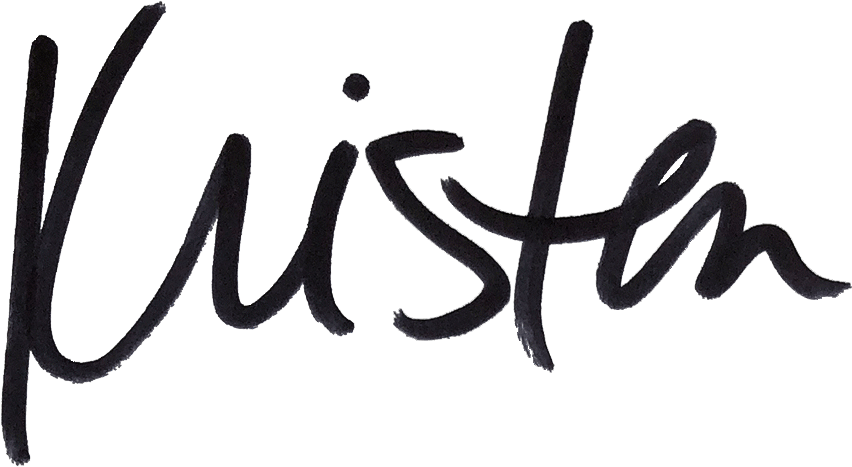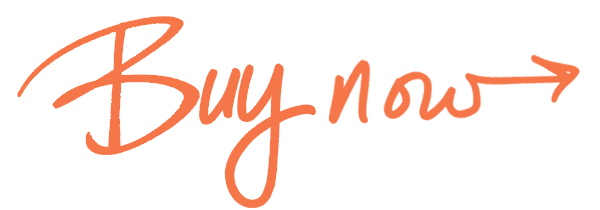I’ve had a secret for a bunch of years, but I’ve felt too much SCARY BEING JUDGED FEAR to share it in any sort of meaningful or worthwhile way.
Here goes: most of my work days last for three hours or less.
I’ve been consciously shaping a shorter work day for myself for years now.
Before you form a mob and come at me with pitchforks because I’m such a spoiled brat, lemme tell you how this started.
For a bunch of years, I was struggling with depression. I also had worsening-but-undiagnosed thyroid issues. For about eighteen months there, I had both extremely intense thyroid issues and clinical depression. (Story of how I slooooowly healed my thyroid here.)
Translation: naps were not optional. Getting out of bed and showering were serious achievements.
Not like, ‘Hehe I know! Showering is a pain in the ass.’ More like, ‘I have to lie down now that I’ve taken a shower since my body is experiencing a power failure.’
Where I could once happily work for eight to ten hours a day, the picture of productivity (see: capitalism), I found myself struggling to retain focus. I could only write for a few minutes at a time. I had trouble crafting zippy and witty responses to clients.
My brain fog was so severe that if you asked me to describe it in any detail, I would burst into tears and wobble my mouth at you like a sad, ancient animal with no will to live.
I was scared that my brain would never recover and therefore I’d have to give up writing forever.
Naturally, I decided to go down fighting. I cut my hours back again and again, beating myself up all the while: I’ll work until 4 pm. Until 3 pm. Until 2 pm. You can’t handle working until 2, really?
Okay fine, I’ll work until lunch. I was so embarrassed to be so ‘sick’ and ‘broken,’ but that’s how I ultimately came to set up a lasting schedule. (See also: your brain is an asshole and your shame is not interesting.)
I’ve currently got a 9:30 to Noon routine. That’s my time for getting absolutely everything important done: writing, podcast recording, emailing, selling, coaching, planning, and the like. Only two and a half hours to do it.
In the afternoon, I do tasks that don’t require as much of my magic: scheduling, uploading, downloading, and updating. That lasts for at least half an hour, sometimes up to 2 hours, but consists mostly of tasks that are optional or that take place away from my computer. I schedule time to do breathwork, cook dinner, stretch, pick up library books, and otherwise take damn good care of myself most afternoons. On Fridays, I coach until about 3 pm because I know I’ll have the weekend to recover if I overextend myself.
What I’ve found over the past few years of working-at-a-screen less and working-by-taking-good-notes-in-the-world more is fucking SHOCKING.
The softer I can be with myself, the more I can get done.
Not soft like ‘fuck it,’ but soft like ‘let’s do our best with clear priorities and well-defined tasks.’
When you’re only working for a few hours, you have no choice but to prioritize. There’s no time for clicking on a rabbit hole about author’s diaries, fiddling with Spotify playlists, scrolling on Instagram, squeezing in some online shopping, or eyeing the competition. No time for answering texts, fiddling with group chats, or distracting yourself with household tasks that are suddenly quite urgent because WHAT WILL PEOPLE THINK IF I HAVEN’T TAKEN OUT THE RECYCLING TODAY.
You’ve only got time for your work.
If you’re like, HOLY SHIT WHAT IS THIS MAGIC TELL ME HOW…let’s do this.
First, you’ll need to prioritize the shit out of your work life.
Let’s think of your work in three categories: magic, mogul, and muggle.
Magic is the work that ONLY you can do.
No one else can write your books, speak at your gigs, do your coaching sessions, or…whatever it is that people pay you (and only you) to do. Bear cannot send me to one of his DJ gigs, ’cause I’ll just play Ace of Base’s ‘The Sign’ on repeat until everyone goes home. That’s his magic.
My magic is writing, editing, communicating with peeps via the podcast, coaching, and holding or planning breathwork classes.
Magic is scheduled for your most productive time of day.
In my case, that’s first thing, which also keeps me from wading into my inbox and getting distracted by whatever is waiting for me each morning. Magic is blocked off for 1-2 hours on any given work day.
Most people skip their magic 100% of the time.
They try to schedule it for big blocks of uninterrupted time — preferably on a desert island — and allow every other urgent-but-not-deeply-important task to eat away at their work time. If you’ve ever dreamed of doing all your work Somewhere Far Away With No Interruptions for 7 to 30 days, you know this predicament well.
Making magic a daily activity changes the nature of your business and ups your quality of life significantly.
If I tried to shove all my most awesome talents into use for 6 hours on Friday, then left the rest of my week to things like spreadsheets, updates, and answering emails within 40 seconds of their arrival in my inbox, I would hate my life. (If you currently hate your business, I’ll bet that this lack-of-magic-time has something to do with it!)
If you’re like, ‘Okay, but uh…WTF is my magic, Kristen? What should go into that time for me?’
Some questions to suss out your magic:
What is it that only you can do?
What will make 5-years-from-now you proud?
What will move the ball forward on the project you’ve given the most significance at the moment?
Hint: that will rarely be answering emails the minute they come in, returning phone calls within 30 seconds of receiving them, or putting your best work at the least alive part of your day. My most alive part happens when I wake up, so I hit the breakfast train and get to work as quickly as possible. Some people say you MUST work out before you sit before a screen, but that takes up too much of my magic time.
Next, there’s moguling. This involves any and every activity you do to bring money into your business.
That’s selling, marketing, planning a launch, following up with potential clients, talking with potential clients, and letting current clients know about referral perks of any kind. (For example: refer a coaching client to me for KK on Tap and you get a free 1-hour coaching call! There are 5 spots left.)
If you’re afraid of selling or marketing — or simply new to it — you’ll naturally push this off until it’s absolutely necessary. Read: you’re out of money.
When you can make moguling a habit — even for 10 minutes a day — you make massive changes in how you perceive and talk about your business.
You promote your work before it’s crunch time. You respond to clients in a timely-but-not-instant timeframe. You handle any issues that come up before they’re a big deal, and you do so without trying to batch every last miserable marketing task imaginable into a single day at a time when you’re completely out of cash.
Eventually, you don’t avoid these activities because they are a tiny stripe of time built into your day between magic and muggling. They are not a dreaded task that sucks all of your mental energy, or an enormous task that feels far too stressful to even begin. Consistent workday moguling is one of the keys to how I get a great deal of work done in a small period of time without freaking out about how I should be doing more (and more and more and more and more).
To suss out moguling in your life:
How often do you mention your products and services to: your email list? To social media? To those you meet?
How many times do you follow up with potential clients before assuming they’re not interested?
If your work is limited in some capacity, are the number of available spots in your calendar extremely clear upon visiting your website? (i.e. 5 KK on Tap coaching spots are left for this year! Learn more here.)
Do you keep an updated spreadsheet of your actual and projected income for your business?
Do you keep a regularly-updated marketing calendar, and then stick to it?
Here’s how to make a marketing calendar if that’s new to you! Also if you’re like, OH GOD HOW DO I DO THESE THINGS, pick up a copy of Go Your Own Way: free yourself from business as usual.
If you’d like to begin to cultivate the habit of communicating with your peeps — i.e. to send a damn newsletter already — I’ll walk you through how to do that without wanting to curl up and die in my How to F*&(ing Communicate course.
Finally, there’s muggling. These are non-magical, ordinary tasks.
This is the great time sink of life: the scheduling of appointments, the answering of emails, the attending of meetings, and, frequently, the avoiding of much harder activities. Most peeps I coach tend to give this category about 90% of their total resources on any given day. (In case you’re like, ‘NO NOT ME I NEVER MUGGLE:’ scrolling on your phone is muggling 100% of the time.)
We all know that muggling is often urgent, which is how it skips to the front of our to-do lists. It also requires the least amount of risk on our part, as it’s generally shuffling messages around, making plans for everyday tasks, and staying afloat in life without making any waves.
If you’re risk avoidant or generally feeling tired on any given day, it’s absolutely normal for muggling to show up and take over your business life. Let’s change that.
To suss out muggling in your life:
Which everyday activities take up most of your time?
How many times a day do you check your email?
How many times a day do you respond to your email — because checking and responding are two different things?
How much time do you dedicate to taking care of everyday business needs, versus working on projects and tasks that only you can do?
Which recurring tasks need to be scheduled so that you don’t keep missing the time necessary to complete them each day/month/week? (Here’s everything I know about time management.)
Which muggling tasks can be outsourced to another human or batched on a regular timeframe (i.e. checking email and voicemail twice a day instead of every 2 minutes)?
The good news is, it’s fairly easy to steal time back from muggling.
The first and most important step to having a shorter work day is to STOP WORKING WHEN YOU’RE DONE WORKING.
If you only check your email twice a day for 20 minutes at a time, you’ll free up those hours where you’re sitting at the computer not-working, but feeling guilty about how little you actually have to accomplish today.
If you’ve handled your obligations, completed your magical time, and let your peeps know how much of your work is on offer at the moment, YOU ARE FREE TO MOVE ABOUT THE WORLD.
You’ll have to give up a tremendous amount of guilt to make this a shorter work day thing happen.
Ah yes, the guilt: I know it well. My friends are working so hard at their 9 to 5’s, shouldn’t I be miserable, too? My friend in corporate America answers more than 200 emails a day, shouldn’t I be able to answer my emails immediately in order to compensate for how few I handle? My other friend in corporate America is in meetings for 3 to 7 hours a day, so shouldn’t I be sitting at my computer to — in some strange and energetic way — atone for the fact that I’ve got my own business and could be doing anything at all right now?
You don’t have to curb your freedom because those you love aren’t as free.
To put it another way: the belief that we should be working for eight hours a day, five days a week, at a screen, without fail, is bullshit.
When you get softer, you can give yourself many permissions in order to work through your asshole brain’s nagging about how lazy and useless you are.
These might help you unlock a shorter work day:
Permission to work for as long as you have legitimate activities to complete — and then close up shop for the day.
Permission to schedule as much or as little work as you can handle on any given day — and in any given season of life.
Permission to keep your business as big or small as you’d like — particularly small, which gets shamed by internet gurus the world over.
Permission to give up scrolling, procrastinating, and other forms of bullshit in order to do your work and then get on with your day.
Permission to admit that screens are only a small part of many businesses! If you’re a dancer, dance. If you’re a painter, paint! If you’re a writer, write. On notebooks and away from screens whenever possible.
Let go of trying to control everything, or trying to find the thread that leads to all systems coming together perfectly, all ills disappearing, all boxes being checked, all signs pointing to go, all beings blissful at once. (This is much harder than it seems, and will require continued effort.)
If you’d like to experience my particular magic, look no further than The Softness Sessions!
The Softness Sessions will help you take the first steps toward being softer with yourself — with your schedule, with your productivity, and with what you can achieve on any given day — with the help of weekly wisdom throwdowns and breathwork.
Breathwork is an active 3-part meditation that is like a scrubby brush for your soul. It cleans up emotional residue, inherited or outdated thought patterns, and habitual actions. All you’ve got to do is lie down and breathe.
I’ll walk you through the common areas where we humans encounter major tangles — loneliness, mess, doubt, wandering the wilderness, steadiness, and joy — and then we’ll move through each one with breathwork.
You’ll come out the other side less attached to guilt, shame, fear, and the bullshit that’s lived in you for so long that you can’t see it anymore.
Expect to feel brighter, lighter, and softer at the end of the sessions. We start March 19th, 2020, and Early Bird Pricing is in effect. Buy now!





